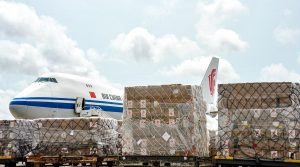Last week the attention of global media was centered on the Extraordinary China-Africa Summit on Solidarity against COVID-19, held via video conference in Beijing in the presence of Chinese President Xi Jinping and with the participation of leaders of African countries and special guests, Secretary-General of the United Nations Antonio Guterres and the Director-General of the World Health Organization Tedros Adhanom Ghebreyesus.
The event represented an opportunity to mark the important achievements of China-Africa cooperation in fighting the COVID-19 pandemic and to discuss from a much broader perspective the economic ties between China and several African countries in relation to the financing solutions that Chinese policy and commercial banks are able to guarantee for the construction of infrastructure on the African continent in its development path.
In particular, the summit has offered an opportunity to China, being a major Africa creditor for holding about a third of its sovereign debt, to make an important announcement regarding the waiving of some African nations’ debt and the willingness to provide support through loan-maturity extensions to free up financial resources to deal with the pandemic.
The decision of China follows the resolution made in the month of April by the International Monetary Fund and the World Bank and backed by the Group of 20 countries for a moratorium on debt repayments all this year relieving 77 developing countries in the world, 40 of which are located in sub-Saharan Africa.
The pledge made in April by multilateral institutions is unquestionably good news for the whole world since it guarantees a certain amount of savings under the COVID-19-linked Debt Service Suspension Initiative (DSSI) but it has to be stressed that this kind of relief has an effect only limited in the short-term due to the nature of the initiative to postpone but not to cancel debt payments.
China, as a key member of the international community in the 21st century, has understood the relevance of its role as the world’s second economy and the responsibility it has towards Africa for being its largest investor.
In this sense, China’s decision not only represents an act of generosity toward countries facing a difficult time by voluntarily deciding to cancel part of the pending debt but also demonstrates that China feels comfortable in filling the leadership vacuum left by the United States and by the rest of Western nations that have not been able to solve the African debt issue for decades.

As an example, from 2010 to 2018, China lent over 150 billion U.S. dollars to African nations for projects mainly related to the Belt and Road Initiatives contributing to Africa’s development in a much more concrete way than what developed countries have ever done in the past and by relying on world-class expertise in building infrastructure projects and on a strong financing apparatus that consists of the world’s four biggest banks.
The criticism coming from Western countries about the reasons for China’s gesture is frankly unjustified due to the lack of solutions provided by them to Africa in the past.
In this regard, the request to China from the president of France to cancel Africa’s debt to help should raise questions about the past French colonialism in the African continent with the exploitation of resources from local governments and people even after the end of the colonialism period through a financial control with the imposition of a currency and the consequent erosion of monetary sovereignty.
Moreover, the accusations that China is using so-called “debt-trap diplomacy” to establish bilateral relations with African countries in need and is moved to lend by pure colonialism and mercantilism seem unfounded considering the lack of asset seizures from China and the positive impact that a large number of infrastructure projects funded by Chinese loans in building roads, railways and ports has had on trade, healthcare and education system.
Western countries should realize that China’s move, which it is not obliged to take, represents a financial burden because of the decision to write-off part of the loans with a consequent loss of money for its lenders but in a period of global uncertainty, the country is demonstrating that it is guided by reasons that go beyond pure economic or financial transactions.
In that respect, China is showing real economic responsibility through actions that speak much louder than other nations’ words in the past and by doing this it is demonstrating that the country is ready to assume a prominent role at a time when global leadership is more than needed.
Matteo Giovannini is a finance professional at the Industrial and Commercial Bank of China in Beijing and a member of the China Task Force at the Italian Ministry of Economic Development.
Source: cgtn.com
 Africa -China Review Africa -China Cooperation and Transformation
Africa -China Review Africa -China Cooperation and Transformation